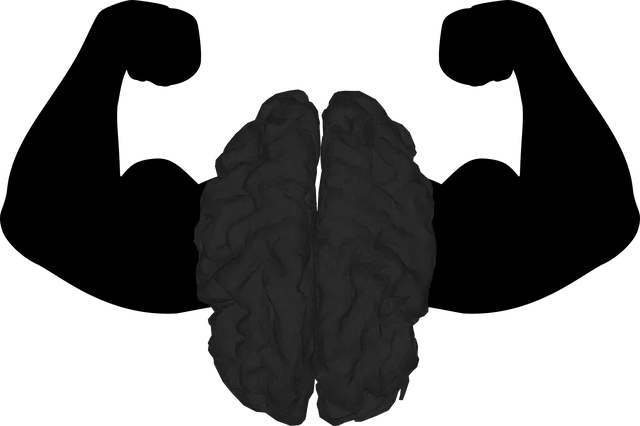Cultural competency is a vital skill set for Littleton Kaiser Permanente mental health providers, enabling them to deliver tailored and effective care to a diverse patient population. Through interactive workshops, role-playing scenarios, and self-reflection exercises, providers learn to interact sensitively, adapt therapy sessions, and incorporate cultural practices. This fosters inclusive environments, enhances communication strategies, and strengthens connections with patients from various backgrounds, ultimately improving patient care satisfaction.
“In an increasingly diverse society, cultural competency within healthcare is more critical than ever. This article explores the essential topic of training for Littleton Kaiser Permanente’s mental health providers, focusing on enhancing cultural understanding and sensitivity. We delve into the significance of cultural competency in improving patient care and outcomes, especially within a diverse community. The discussion covers key training components and provides a practical framework for implementing and evaluating effective cultural competency programs at Kaiser Permanente, Littleton.”
- Understanding Cultural Competency in Healthcare: Why It Matters for Littleton Kaiser Permanente Mental Health Providers
- Key Components of Effective Training Programs for Cultural Competency
- Implementing and Evaluating Cultural Competency Training at Kaiser Permanente, Littleton: A Practical Approach
Understanding Cultural Competency in Healthcare: Why It Matters for Littleton Kaiser Permanente Mental Health Providers

Cultural competency is a vital skill set for Littleton Kaiser Permanente mental health providers, as it enables them to offer tailored and effective care to a diverse range of patients. In an increasingly multicultural society, understanding and appreciating different cultural backgrounds, beliefs, and values are essential to ensuring equitable access to healthcare services. This concept goes beyond mere awareness; it involves developing the ability to effectively interact, communicate, and provide culturally sensitive support.
For mental health professionals, this means adapting their approaches to suit individual patient needs. It includes learning about various cultural practices, coping skills, and traditional healing methods that can be integrated into therapy sessions. By incorporating these aspects, Littleton Kaiser Permanente mental health providers can create a safe and inclusive environment, fostering open dialogue and better understanding of patients’ unique perspectives. Moreover, this competency helps in accurate risk assessment, as cultural factors can significantly influence an individual’s mental health presentation and response to treatment. Effective communication strategies are also enhanced through cultural competency training, allowing professionals to build stronger connections with patients from diverse backgrounds.
Key Components of Effective Training Programs for Cultural Competency

Effective training programs for cultural competency among healthcare providers, such as those at Littleton Kaiser Permanente focusing on mental health, should incorporate several key components. Firstly, they must engage participants through interactive workshops and role-playing scenarios that simulate real-world interactions with patients from diverse backgrounds. This hands-on approach allows mental health professionals to practice applying cultural sensitivity in practical contexts, fostering a deeper understanding of emotional healing processes across different communities.
Secondly, these programs should emphasize the importance of self-reflection and personal bias awareness. By encouraging open discussions about preconceived notions and stereotypes, training sessions can help mental health providers recognize their own biases and learn strategies to navigate them. Integrating learning from the Community Outreach Program Implementation can further enrich these discussions, offering insights into community perspectives and the broader context of mental health awareness within diverse populations.
Implementing and Evaluating Cultural Competency Training at Kaiser Permanente, Littleton: A Practical Approach

At Kaiser Permanente Littleton, implementing cultural competency training for mental health providers has been a strategic move to enhance patient care and satisfaction. This practical approach recognizes the diverse backgrounds and needs of the community they serve, ensuring that every individual receives respectful and culturally sensitive treatment. The program focuses on educating healthcare providers about various cultural perspectives, including but not limited to, self-care practices tailored to different communities. By equipping mental health professionals with crisis intervention guidance aligned with cultural competency, Kaiser Permanente Littleton aims to improve diagnosis and treatment plans.
Evaluating the effectiveness of this training involves measuring improvements in provider attitudes, knowledge, and skills related to cultural sensitivity. Feedback from both participants and patients is crucial, providing insights into the program’s impact on clinical practice and patient outcomes. Through continuous assessment, Kaiser Permanente Littleton can refine their healthcare provider cultural competency training, ensuring it remains relevant and impactful for its diverse patient population, especially in areas like mental health services.
Cultural competency training is a vital tool for improving healthcare outcomes, especially for Littleton Kaiser Permanente mental health providers interacting with diverse patient populations. By incorporating key components such as cross-cultural communication, awareness of unconscious biases, and respect for cultural traditions, these programs empower professionals to deliver more personalized and effective care. As demonstrated by Kaiser Permanente’s successful implementation in Littleton, a structured, evaluated approach ensures that training translates into meaningful action, fostering an inclusive environment where every patient feels heard and respected.

